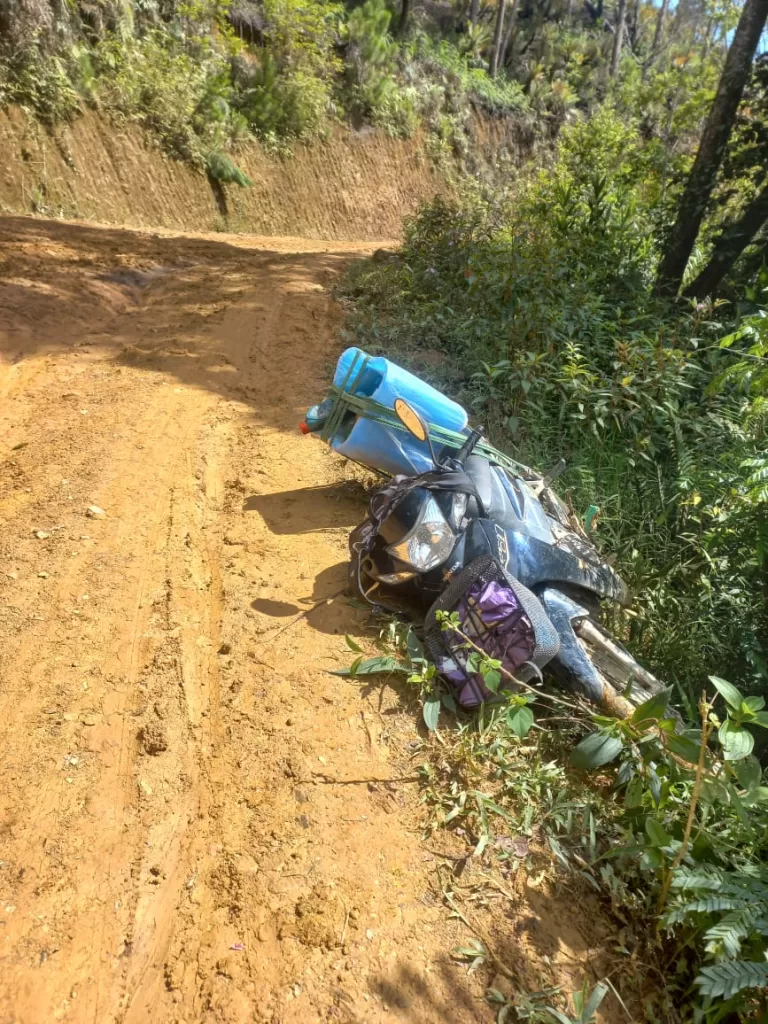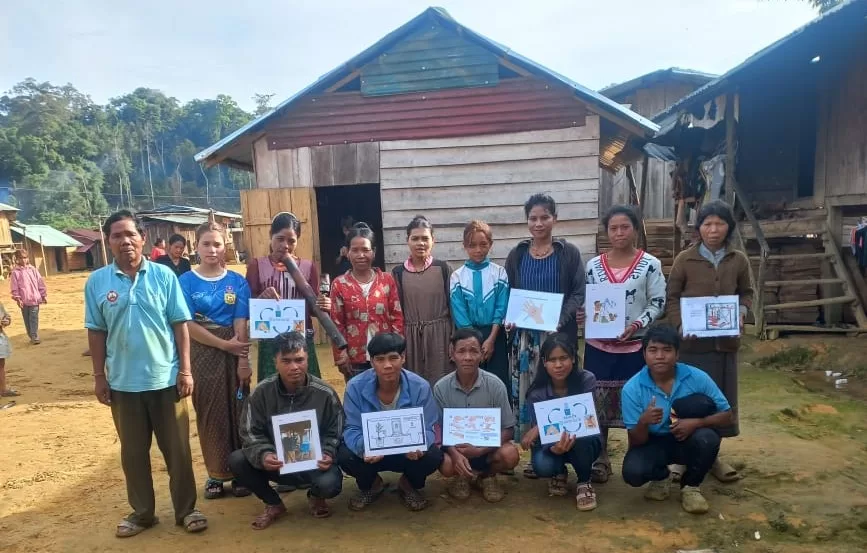The rainy season has started again in Laos, when the skies open up with torrential rain that inundates the land. Every year from May through October, the rains turn dirt roads into rivers of mud. After the torrents, the sun comes out but can barely make a difference to the roads which have now turned into deep, churning mud. Many vehicles can’t to travel the route to Kaleum district during the raining season — a remote area nestled among forested hills in southern Laos. The roads are rough even in the dry season, but during the rains, they become almost impassable. But for Vilayphone, a dedicated sales representative with TerraClear, turning back wasn’t an option. Using his motorbike, Vilayphone planned to push through and make the journey.

He had already delivered filters to many families in the villages in Kaleum who otherwise had little access to clean water. Many previously drank directly from streams or collected rainwater in old containers — water that looked clear but could carry bacteria and disease. Kaleum is one of the poorest areas of southern Laos. For the families who had received filters, Vilayphone’s work now was to return each month and give lessons in health and sanitation that would help the families have healthy practices, actions that, combined with the clean drinking water from the filters, will change their lives.
With courage and fortitude, Vilayphone headed out early in the morning. The sky was clearing, and he hoped that meant the roads were somewhat drier and passable. “I know I can do it,” he thought, “The families are waiting.”
The journey was slow and dangerous. The whole road was gooey with mud, and deep ruts filled with water made the bike lurch and slip. In some places, he had to get off and walk the bike, pushing through the muck. The bike even slipped off the road on one steep area, sliding into the road ditch. It took some work, but Vilayphone got it on the road again. But inch by inch, he kept moving forward.

After hours of struggle, he finally reached the village — soaked, muddy, and exhausted. But as soon as the families saw him arrive, the word got around, “the water filter man is here!”
Vilayphone wasted no time. He began visiting the families, using pictures to teach about clean water, handwashing, and the dangers of open defecation. As he proceeded, rain tapped steadily on the roof, and children huddled close to their mothers as Vilayphone explained how the filters worked: how the clay removed bacteria, how the water could be safe to drink — even for little ones. He taught good handwashing technique. He explained how soap ensures clean hands and healthy bodies. For Vilayphone, these moments made the entire difficult journey worth it.
“You see,” he told the families, “these practices will help keep you and your children from getting sick.”
By the time the training was done, the sun had briefly broken through the clouds. The village chief came forward and thanked him.
“You came even when the road was bad. Even with the rain,” he said. “You didn’t forget us.”
Vilayphone nodded. “Clean water and good health practices shouldn’t wait for good weather,” he said. “Your families deserve it — rain or shine.”
And with that, he prepared to head back, his heart full even though the road ahead was still long and muddy. Because sometimes, the hardest roads lead to the most important work.





Leave a Reply
Your email is safe with us.